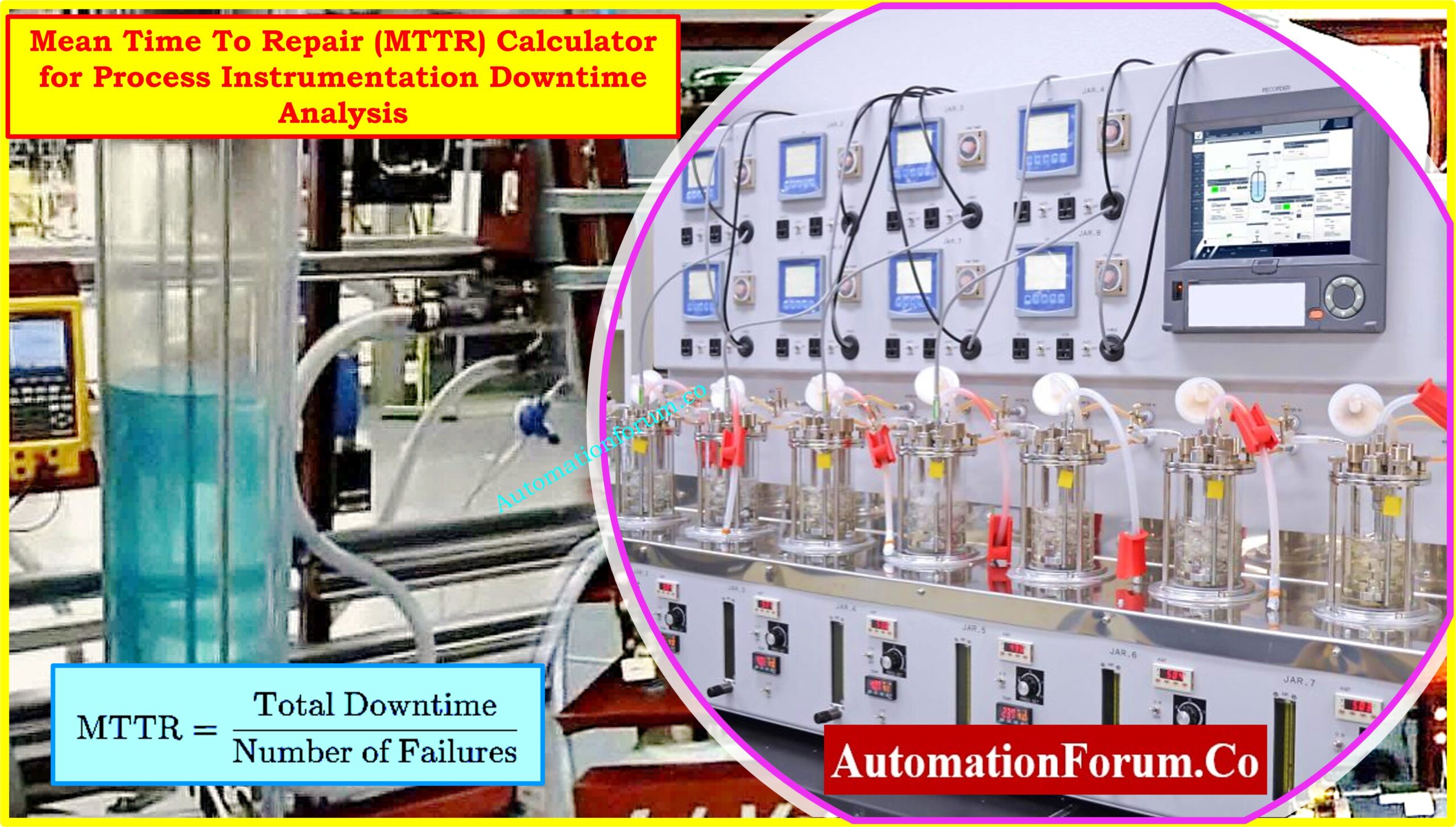
What is Modbus?
- In industrial automation, Modbus is a popular communication protocol.
- It enables data exchange between devices like sensors, PLCs, HMIs and controllers, allowing them to monitor and control processes.
- Modbus operates over serial or Ethernet connections and uses a simple, open format for transmitting data, making it popular in manufacturing and control systems.
What are the different variants of Modbus?
Modbus has several variants, each tailored to specific communication needs:
- Modbus RTU: A binary protocol that uses a compact representation of data, typically over serial connections like RS-232 or RS-485.
- Modbus ASCII: Similar to RTU, but with data represented in ASCII characters, making it more human-readable but less efficient.
- Modbus TCP/IP: Designed for Ethernet networks, it encapsulates Modbus RTU/ASCII messages within TCP/IP packets, enabling communication over Ethernet.
- Modbus RTU over TCP/IP: Combines the efficiency of RTU with the benefits of TCP/IP networks, allowing Modbus RTU devices to communicate over Ethernet.
- Modbus Plus: A proprietary extension by Schneider Electric for high-speed, deterministic communication in their systems.
How does Modbus communication work?
- Modbus communication operates on a master-slave architecture.
- A master device (like a controller or computer) initiates communication by sending requests to one or more slave devices (e.g., sensors or actuators).
- The request includes a function code that specifies the action to be performed, such as reading data from or writing data to a slave device’s registers.
- The slave device processes the request, responds with the requested data or an acknowledgment, and waits for further instructions. Communication typically occurs over serial (RS-232/RS-485) or Ethernet connections, with specific variants like Modbus RTU or Modbus TCP/IP dictating the framing and encoding of data.
What are the common Modbus function codes?
Common Modbus function codes dictate specific actions in Modbus communication. Key ones include:
- Read Coil Status (FC 01): Reads digital output (coil) states in a slave device.
- Read Input Status (FC 02): Reads digital input states from a slave device.
- Read Holding Registers (FC 03): Reads analog values from holding registers in a slave device.
- Read Input Registers (FC 04): Reads analog values from input registers in a slave device.
- Write Single Coil (FC 05): Sets the state of a single digital output (coil) in a slave device.
- Write Single Register (FC 06): Writes a single value to an analog holding register in a slave device.
- Write Multiple Coils (FC 15): Writes multiple digital output (coil) states in a slave device.
- Write Multiple Registers (FC 16): Writes multiple analog values to holding registers in a slave device.
What are holding registers and input registers in Modbus?
In Modbus communication, “Holding Registers” and “Input Registers” are two types of data storage locations within a slave device, and they serve different purposes:
- Holding Registers: These registers are used to store data that can be both written to and read from by a Modbus master device. Holding registers are typically used for data that represents settings, setpoints, or other variables that need to be configured or controlled by the master device. Modbus function codes 03 (Read Holding Registers) and 06 (Preset Single Register) are commonly used to read from and write to holding registers.
- Input Registers: Input registers, on the other hand, are read-only registers in a Modbus slave device. They store data that the slave device wants to make available for reading by a Modbus master device but does not allow the master device to write to them. Input registers are typically used to store data such as sensor readings or process values. Modbus function code 04 (Read Input Registers) is used to read data from input registers.
What is the difference between Modbus RTU and Modbus TCP?
- Modbus RTU is a serial communication protocol, transmitted in binary format over RS-232 or RS-485 connections, whereas Modbus TCP is an Ethernet-based protocol that encapsulates Modbus RTU/ASCII messages in TCP/IP packets.
- RTU is suited for point-to-point or multidrop serial connections, while TCP operates over standard Ethernet networks, offering greater flexibility and wider accessibility.
Is Modbus a secure protocol?
- No, Modbus was not originally designed with security features, making it vulnerable to cyber threats.
- Implementers must add additional security measures like firewalls, VPNs, and encryption to protect Modbus networks.
- Modern versions, like Modbus/TCP Secure, address some security concerns, but overall, it’s essential to take extra precautions to ensure Modbus network security.
What are the advantages of using Modbus?
- Simplicity: Modbus uses a straightforward and easily understood communication protocol, making it relatively easy to implement and troubleshoot.
- Interoperability: Modbus is an open standard, enabling devices from different manufacturers to communicate seamlessly, promoting interoperability in industrial automation.
- Flexibility: It can operate over various communication mediums, including serial (RS-232/RS-485) and Ethernet (Modbus TCP), allowing flexibility in system design.
- Wide Adoption: Modbus has a long history and a large user base, making it a widely recognized and supported protocol in the industrial automation field.
- Community Support: A large community of users and developers contributes to its ongoing development and support, ensuring its relevance and reliability.
What are the disadvantages of Modbus?
Certainly, Modbus has some limitations:
- Security Concerns: Modbus lacks inherent security features, making it vulnerable to unauthorized access or cyberattacks.
- Limited Data Types: It primarily supports basic data types, making it less suitable for complex data structures or advanced applications.
- Slower Data Transfer: Modbus may have slower data transfer rates compared to newer protocols, which can affect real-time or high-speed applications.
- No Built-in Redundancy: It doesn’t offer built-in redundancy mechanisms, increasing the risk of system failures in critical applications.
Can Modbus be used in modern industrial systems?
- Yes, Modbus can be used in modern industrial systems with proper precautions.
- While it lacks advanced security and high-speed capabilities of newer protocols, it’s still employed due to its simplicity, interoperability, cost-effectiveness and wide adoption.
- Implementers often combine Modbus with additional security measures to address its limitations in contemporary industrial setups.
What are some alternatives to Modbus?
Alternatives to Modbus for industrial communication include:
- PROFINET: A real-time Ethernet protocol for industrial automation with high performance and flexibility.
- Foundation field bus: Foundation Fieldbus is a digital communication protocol widely used in industrial automation and process control systems. It enables real-time data exchange between field devices and control systems, enhancing efficiency and allowing for advanced diagnostics and control in industrial processes.
- EtherNet/IP: A protocol that uses standard Ethernet for industrial applications, providing seamless integration with office networks.
- OPC UA (Unified Architecture): A platform-independent, secure communication protocol for industrial interoperability.
- MQTT (Message Queuing Telemetry Transport): A lightweight, publish-subscribe messaging protocol suitable for IoT and remote monitoring applications.
These alternatives offer various features and capabilities to meet the specific needs of modern industrial systems.
Can Modbus be used over wireless connections?
- Yes, Modbus can indeed be used over wireless connections.
- Various wireless technologies, including Wi-Fi, Bluetooth, and cellular networks, can facilitate wireless Modbus communication.
- However, it’s crucial to address potential issues related to signal stability, interference, and security when deploying Modbus over wireless networks.
Is Modbus limited to a specific industry or application?
- No, Modbus is not limited to a specific industry or application.
- It is a versatile and widely used communication protocol employed in diverse sectors, including manufacturing, energy, building automation, process control, and more.
- Its adaptability and simplicity make it suitable for a broad range of industrial and automation applications.
How can I secure Modbus communication?
To secure Modbus communication:
- Firewalls: Use firewalls to restrict access to Modbus devices, allowing only authorized IP addresses to communicate with them.
- Virtual Private Networks (VPNs): Implement VPNs to encrypt Modbus data over the network, ensuring secure point-to-point communication.
- Encryption: Encrypt Modbus messages using technologies like SSL/TLS to protect data from eavesdropping.
- Authentication: Use strong authentication mechanisms to verify the identity of devices and users.
- Access Control: Implement access control policies to limit privileges and permissions for users and devices.
- Regular Updates: Keep Modbus devices and software up to date with security patches.
- Network Segmentation: Segment the network to isolate Modbus systems from other critical infrastructure.
By combining these measures, you can significantly enhance the security of your Modbus communication.
Is Modbus open-source?
- Modbus is not a single open-source implementation but an open protocol.
- It’s a publicly available communication protocol with specifications and standards freely accessible to developers and manufacturers. As a result, there are various open-source libraries and software implementations for Modbus created by different developers and organizations, enhancing its accessibility and versatility in industrial applications.
certainly a comprehensive understanding and successful application of Modbus in industrial and automation systems depend on investigating the protocol in greater detail, taking into account specific use cases, and analyzing advanced features and security measures. For the best results, it’s crucial to adapt the information to the particular requirements of your project.





